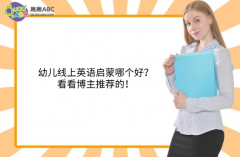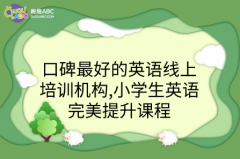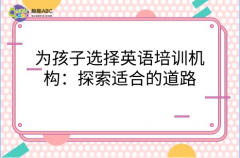Do you want to live a happier, less stressful(有压力的)life? Try laughing for no reason at all. That‘s how thousands of people start their day at Laughter Clubs around the world--and many doctors now think that having a good laugh might be one of the best ways to stay healthy.
The first Laughter Club was started in Mumbai, India, in 1995 by Dr. Madan Kataria. “Young children laugh about 300 times a day. Adults laugh between 7 and 15 times a day.” says Dr. Kataria. “Everyone’s naturally good at laughing--it‘s the universal language. We want people to feel happy with their lives.” There are now more than 500 Laughter Clubs in India and over 1,300 worldwide.
Many doctors are also interested in the effects(效果)of laughter on our health. According to a 5-year study at the UCLA School of Medicine in California, with laughing there is less stress in the body. Laughter improves our health against illness by about 40%.
So, what happens at a Laughter Club? I went along to my nearest club in South London to find out. I was quite nervous at the beginning of the class, to be honest--I wasn’t interested in laughing with a group of strangers, and I was worried about looking stupid. Our laughter teacher told us to clap our hands and say “ho ho ho, ha ha ha,” while looking at each other. However, our bodies can‘t tell the difference between fake laughter and real laughter. So they still produce the same healthy effects.
Surprisingly, it works! After ten minutes everybody in the room was laughing for real--and some people just couldn’t stop! At the end of the class I was surprised by how relaxed and comfortable I felt. So if you‘re under stress, then start laughing. You might be very pleased with the results!
36. In which country was the first Laughter Club started?
A. Britain. B. America. C. Australia. D. India.
37. How did the writer feel at the beginning of the class?
A. Surprised. B. Pleased. C. Nervous. D. Stressful.
38. How often does a young child laugh?
A. 300 times a day.
B. 150 times a day.
C. 7-15 times a day.
D. It doesn’t tell us.
39. When did the people in the club begin to laugh for real?
A. After a few minutes
B. After a few hours.
C. After a few seconds.
D. After a few days
40. Which of the following is true according to the passage?
A. Fake laughter and real laughter are both good for health.
B. 40 % of the people in Laughter Clubs are good friends.
C. Adults laugh more often than children in a day.
D. Laughing is the best way to prevent illness.
答案:
36.D,该题是一道事实细节题,根据文章第二段第一行,可知答案
37.C,该题是一道事实细节题,根据文章第四段第二行‘I was quite nervous at the beginning of the class’,可知答案
38.A,该题是一道事实细节题,根据文章第二段第二行‘Young children laugh about 300 times a day’,可知答案
39.A,该题是一道事实细节题,根据文章后一段第一行‘After ten minutes everybody in the room was laughing for real’,可知答案
40.A,该题是一道判断正误题。根据文章第四段后一句话‘So they still produce the same healthy effects’,可知答案

Vacations are a chance to take a break from work, see the world and enjoy time with family. But do they make you happier?
Researchers from the Netherlands set out to measure the effect that vacations have on overall happiness and how long it lasts. They studied happiness levels among 1, 530 Dutch adults, 974 of whom took a vacation during the 32-week study period. The study showed that the largest lift in happiness comes from the simple act of planning a vacation. In the study, the effect of vacation anticipation lifted happiness for eight weeks.
After the vacation, happiness quickly dropped back to baseline levels for most people. How much stress or relaxation a traveler experienced on the trip appeared to influence post-vacation happiness. There was no post-trip happiness benefit for travelers who said the vacation was “neutral” or “stressful.”
Surprisingly, even those travelers who described the trip as “relaxing” showed no additional jump in happiness after the trip. “They were no happier than people who had not been on holiday,” said the lead author, Jeroen Nawijn, tourism research lecturer at Breda University. The only vacationers who experienced an increase in happiness after the trip were those who reported feeling “very relaxed” on their vacation. Among those people, the vacation happiness effect lasted for just two weeks after the trip before returning to baseline levels.
One reason vacations don‘t increase happiness after the trip may have to do with the stress of returning to work. And for some travelers, the holiday itself was stressful. “In comments from people, the thing they mentioned most referred to disagreements with a travel partner or being ill,” Mr. Nawijn said.
The study didn’t find any relationship between the length of the vacation and overall happiness. Since most of the happiness boost comes from planning and anticipating a vacation, the study suggests that people may get more out of several small trips a year than one big vacation, Mr. Nawijn said.
41. What‘s the best title for this passage?
A. Post-vacation happiness
B. Pre-vacation planning
C. Influence to vacations
D. Research on vacations
42. The study implies that
A. The longer the vacation is, the happier the travelers will be.
B. The better you get your vacation planned, the more happiness you will get.
C. It will make you happier if you divide a big vacation into small ones.
D. None of the travelers were happier than those who had not been on holiday,
43. Which of the statements is not mentioned in the passage?
A. People never have additional jump in happiness after the trip.
B. For most people, happiness quickly dropped back to baseline levels after the vacation.
C. The largest lift in happiness comes from the simple act of planning a vacation.
D. Vacations are a chance to get relaxed from work.
44. Which of the following is NOT the reason for not increasing happiness after a trip?
A. You got different ideas with your partners on holiday.
B. You caught a bad cold during the trip.
C. The worry about whether you could return to work or not.
D. The holiday itself could get you stressed.
45. During the 32-week study period _______ of the people involved took a vacation.
A. about one seconds
C. more than one third
B. about two thirds
D. less than three fifth
答案:
41.A 全文第一段可知本文重点是假日后是否开心。
42.C 全文后一段可知,建议人们一年度几次短假,而不是一次长假。
43.A 全文第一段第一行 Vacations are a chance to take a break from work,排除 D,第二段第三行 The study showed that the largest lift in happiness comes from the simple act of planning a vacation,排除 C,第三段第一行 After the vacation, happiness quickly dropped back to baseline levels for most people.排除 B。
44.C 全文第五段第三行可知,disagreements with a travel partner or being ill,不同行人的丌同意见或者生病,排除 A,B,第五段第二行 And for some travelers,the holiday itself was stressful,排除 D。
45.B 全文第二段第二行,第三行可知 They studied happiness levels among 1, 530 Dutch adults, 974 of whom took a vacation during the 32-week study period,1530 中人 974 人度假了,约占比例的三分之二。

 400-009-0512
400-009-0512






 微信服务号
微信服务号 微信服务号
微信服务号